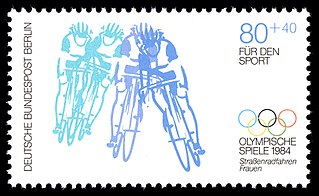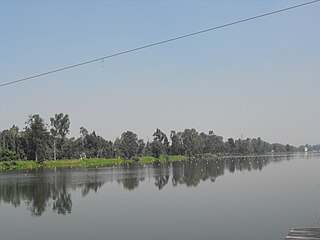Related Research Articles

William Harrison "Bones" Dillard was an American track and field athlete, who is the only male in the history of the Olympic Games to win gold in both the 100 meter (sprints) and the 110 meter hurdles, making him the “World’s Fastest Man” in 1948 and the “World’s Fastest Hurdler” in 1952.

Glenn Ashby "Jeep" Davis was an American Olympic hurdler and sprinter who won a total of three gold medals in the 1956 and 1960 Olympic games.

John Brendan Kelly Jr., also known as Kell Kelly, was an American athlete, a rower, a four-time Olympian, and an Olympic medal winner. He was the son of triple Olympic gold medal winner Jack Kelly Sr., and the elder brother of the actress and Princess of Monaco, Grace Kelly. In 1947, Kelly was awarded the James E. Sullivan Award as the top amateur athlete in the United States. He served a brief tenure as president of the United States Olympic Committee.

Edwin Regur Sweetland was an American coach, trainer, and athletic administrator at several universities. During his coaching career he was head coach of many sports including basketball, track and field, and rowing, but the majority of for his coaching work was in football. Though mainly known for football, he left his mark on several college athletics departments and other sports. This includes being the first athletic trainer at Ohio State University, the first paid coach of the Kentucky Wildcats men's basketball team, and the first coach of Syracuse University rowing team.

Suriname participated in the Olympic Games for the first time at the 1960 Summer Olympics in Rome, Italy, before becoming independent of the Netherlands. The games were held from 25 August to 11 September 1960. The nation sent a delegation of three people: two officials, attaché Lia Del Neri and secretary-general Freddy Glans, and one athlete, runner Wim Esajas, who was set to compete in the men's 800 metres. The national football and basketball teams failed to qualify. Esajas did not participate; he arrived late and missed his heat after being given wrong information by Glans.

The men's sprint was a track cycling event held as part of the Cycling at the 1964 Summer Olympics programme. It was held on 17 and 18 October 1964 at the Hachioji Velodrome. 39 cyclists from 22 nations competed. Nations were limited to two cyclists each. The event was won by Giovanni Pettenella of Italy, the nation's second consecutive and fourth overall victory in the men's sprint. Sergio Bianchetto took silver, making it the second consecutive Games in which Italy had two men on the podium in the event. It was also the fifth straight Games with Italy taking at least silver. Daniel Morelon of France took bronze, the first of his record four medals in the event.

George Thomas Breen was an American Hall of Fame competition swimmer, four-time Olympic medalist in freestyle events, and world record-holder in three events. After retiring as a swimmer, he became a swim coach at the University of Pennsylvania and later the Jersey Wahoos Swim Club.
Albert Ferdinand Zerhusen was a U.S. soccer midfielder who played extensively for the U.S. national team. He is a member of the National Soccer Hall of Fame.

William Danforth Mulliken was a Hall of Fame American competition swimmer who attended Miami University in Oxford and was a 1960 Rome Olympic champion in the men's 200-meter breaststroke. He later practiced law in Chicago, and served as a twenty-year President of the Chicago Masters Swim Club.

Felix Jeffrey Farrell is a Hall of Fame American former competition swimmer, and a 1960 two-time Olympic gold medalist, where he became a world record-holder in two relay events. After the Olympics, he worked as a swim coach abroad, and in the 1980's returned to America, living in Santa Barbara, where he worked in real estate. While training with Santa Barbara Masters, he would break numerous world and national age group records as a Masters competitor between 1981-2011.
Wallace "Wally" Perry Wolf Jr. was an American attorney, bank director, competition swimmer, water polo player, and Olympic champion. He competed in the 1948, 1952, 1956, and 1960 Summer Olympics.
Jack Strangl Bacheler is an American former long-distance runner and two-time U.S. Olympian. Born in Washington, District of Columbia, Bacheler was a founding member of the Florida Track Club at Gainesville, Florida in the late 1960s, and personally designed the club's distinctive "orange" logo. Standing 6 feet 7 inches, yet weighing only 165 pounds, he towered over most of his competitors. Now living in Clayton, North Carolina, he is married to Patricia Bacheler. Bacheler has two children, daughter Teresa (Teri), and son Matthew (Matt).

The men's sprint at the 1960 Summer Olympics in Rome, Italy was held on 26 to 29 August 1960. There were 30 participants from 18 nations. For the first time since 1924, nations were allowed to have more than one competitor each ; for the first time since 1924, one nation took multiple medals. Italians Sante Gaiardoni and Valentino Gasparella won gold and bronze, giving Italy a four-Games podium streak with three total gold medals—second all-time behind France's five. Leo Sterckx's silver was Belgium's first medal in the men's sprint.

The men's sprint cycling event at the 1984 Summer Olympics took place from 31 July to 3 August and was one of eight cycling events at the 1984 Olympics. Once again, the limit on cyclists per nation was raised to 2. The event was won by Mark Gorski of the United States, the nation's first victory in the men's sprint and first medal in the event since John Henry Lake took bronze in 1900. The final was all-American, as Nelson Vails took silver, becoming the first Olympic cycling medalist of African descent. Japan earned its first medal in the men's sprint with Tsutomu Sakamoto's bronze. France's five-Games podium streak in the event ended.
Norman Douglas Freeman was an American sailor, lawyer and convicted sex offender who competed in the 1976 Summer Olympics. He raced Flying Dutchman and finished in sixth place.

The 2016 NASCAR Xfinity Series was the 35th season of the NASCAR Xfinity Series, the second-tier professional stock car racing series sanctioned by NASCAR in the United States. The season started at Daytona International Speedway on February 20 and ended at Homestead-Miami Speedway on November 19. Daniel Suárez of Joe Gibbs Racing won the championship, becoming the first non-American to win a title in NASCAR's top 3 divisions.
Harold William Manning was an American long-distance runner. He held the American record in the men's 3000-meter steeplechase from 1934 to 1952 and briefly held the world best in 1936. He represented the United States in the steeplechase at the 1936 Summer Olympics, placing fifth.

The men's coxed four competition at the 1956 Summer Olympics took place at Lake Wendouree, Ballarat, Australia. It was held from 23 to 27 November and was won by the team from Italy. There were 10 boats from 10 nations, with each nation limited to a single boat in the event. Italy had previously won this event in 1928, tying Switzerland for second-most wins among nations. Sweden (silver) and Finland (bronze) each won their first medal in the men's coxed four. Switzerland had its three-Games silver-medal streak broken, without a Swiss crew competing.

The men's coxed four competition at the 1968 Summer Olympics took place at Virgilio Uribe Rowing and Canoeing Course, Mexico City, Mexico. It was held from 13 to 19 October and was unexpectedly won by the team from New Zealand, which secured the country its first Olympic rowing gold medal. Thirteen teams from 13 nations attended the competition. East Germany earned its first medal in its debut in the event, taking silver. Switzerland took bronze, its first medal in the men's coxed four since 1952.

Denmark competed at the 2020 Summer Olympics in Tokyo. Originally scheduled to take place from 24 July to 9 August 2020, the Games were postponed to 23 July to 8 August 2021, because of the COVID-19 pandemic. Danish athletes have appeared in every edition of the Summer Olympic Games, with the exception of the 1904 Summer Olympics in St. Louis. Before the start of the games, DIF sat an official medal goal of 8–10 medals for the Tokyo games.